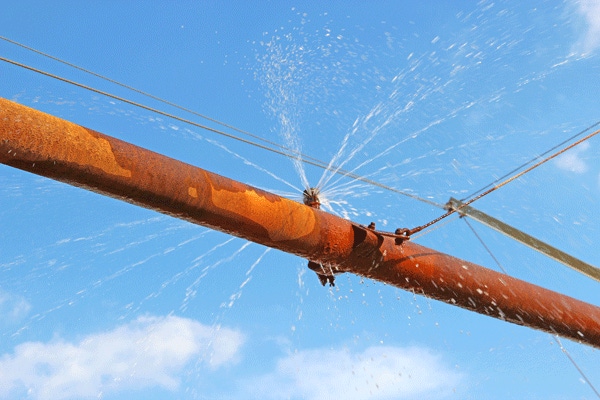February 13, 2013

Helping Alabama row-crop producers get the most out of the irrigation technology they are adopting in ever-increasing numbers is the purpose of an upcoming Irrigation Scheduling Workshop, which will be held Feb. 28, from 8:30 a.m. to 5 p.m. at the E.V. Smith Research Center Conference Facility in Shorter.
The morning session will begin with a presentation by Dale Monks and Brenda Ortiz of Auburn University and Diane Rowland of the University of Florida addressing not only why producers should irrigate, but also why they should schedule irrigation.
Following their remarks, Mark Dougherty, associate professor of biosystems engineering, will present a segment titled “Irrigation Scheduling 101, which will cover the basic principles of irrigation scheduling.
Later in the morning, Dougherty and Calvin Perry of the University of Georgia’s College of Agricultural and Environmental Sciences will supply some answers to the question: “How Much and When to Irrigate?” They will discuss different irrigation scheduling methods now available to address this issue.
Perry will finish the morning with a discussion on sensor-based irrigation — the use of different soil moisture sensors available to determine when to irrigate and at what levels.
After lunch, Diane Rowland of the University of Florida will discuss how to schedule irrigation based on prime acclimation and growing degree days.
This will be followed by a hands-on learning activity in which participants will learn how to collect soil moisture data for irrigation scheduling.
Later in the afternoon, Rowland and Marshall Lamb of the National Peanut Research Lab will introduce participants to a couple of irrigation scheduling computer programs now available.
A question and answer session will follow.
Heavy investment in technology
“We know farmers have invested a lot in this technology,” says Ortiz, an Alabama Cooperative Extension System specialist and assistant professor in Auburn University Department of Agronomy and Soils.
“While it’s important that we invest in this technology, the other important critical issue is how we use it.”
Profitability is the critical concern for most farmers, Ortiz says. But as farmers gear up to feed an estimated 9 billion people by mid-century, another all-consuming concern will be optimizing water use, she says.
“Experience will teach us over the next few decades that we will have to be careful — that we will have to use water resources with a lot of extra care — even in Alabama, where water has traditionally been taken for granted.
“Right now, we might have access to groundwater and surface water for irrigation, but it’s an open question whether we will have enough years down the road.”
“There are two take-home messages concerning irrigation,” she says. “Through irrigation, we not only increase yields and profitability, but we also learn how not to deplete our resources in the process of achieving those goals.”
Ortiz says the extreme variations in weather — severe droughts and temperature spikes, for example — that have occurred in recent years and that will likely grow worse in the future only underscore the importance of mastering irrigation techniques.
“We’ve got to understand that irrigation will be critical not just for growing plants to maturity but also for helping these plants through crises, whether these happen to be prolonged drought or seriously elevated temperatures,” she says.
The Irrigation Scheduling Workshop was designed with all these concerns in mind, Ortiz says.
While the event is free, registration is required, and seating already is limited.
To register, e-mail [email protected].
You May Also Like




